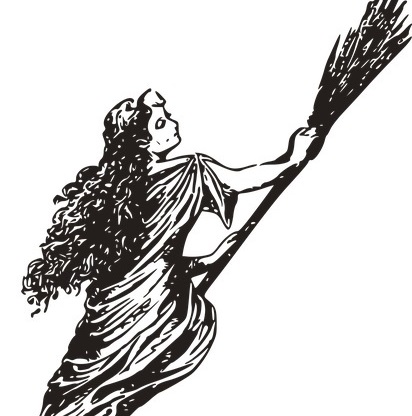
by Richard Subber | Apr 23, 2024 | Human Nature, Theater and play reviews
you see it coming…
Movie review:
Body Heat
Some like it hot. If that’s you, you’ll like Body Heat (1981, rated R, 113 minutes).
Ned Racine (William Hurt in one of his most intense performances) is a caricature of a small town lawyer who doesn’t mind dealing with small town crooks. He also likes the ladies, and he gets snared by a big-thinking criminal lady that he can’t handle.
Matty Walker (Kathleen Turner is an archetype of ambitious, erotic, and nasty) wants to kill her rich husband. She picks Ned to help her do it.
Ned doesn’t figure it all out until he’s in a prison cell.
Matty takes the money and runs.
Body Heat has a lot of sweating, a lot of smoking, some humor (thank you, Ted Danson), and quite a bit of richly filmed hot love and fully expressed humanity in full view.
* * * * * *
Movie review. Copyright © Richard Carl Subber 2024 All rights reserved.
Movie review: Same Time, Next Year
all-American adultery, oh yeah…
–
Above all: Poems of dawn and more with 73 free verse poems,
and the rest of my poetry books are for sale on Amazon (paperback and Kindle)
and free in Kindle Unlimited, search Amazon for “Richard Carl Subber”
* * * * * *

by Richard Subber | Apr 18, 2024 | Book reviews, Books, Human Nature, Joys of reading, Reflections
soul talking…
Book review:
Heart of Darkness
Joseph Conrad (1857-1924)
Edinburgh, Scotland: William Blackwood and Sons, 1902
Recently I re-read Joseph Conrad’s Heart of Darkness. It’s short, quite readable, and sombre, of course.
You may think you know the story because you saw Apocalypse Now. The book is more exploratory. It has more of humanity in it.
The protagonist Marlowe (picture Mickey Rourke in a Panama hat) dives pretty deep into the abyss of human nature…
Give the book a shot if you’re not looking for light reading.
* * * * * *
Book review. Copyright © Richard Carl Subber 2024 All rights reserved.
Book review: Forced Founders
by Woody Holton
The so-called “Founding Fathers”
weren’t the only ones
who helped to shape our independence…
Writing Rainbows: Poems for Grown-Ups with 59 free verse and haiku poems,
and the rest of my poetry books are for sale on Amazon (paperback and Kindle)
and free in Kindle Unlimited, search Amazon for “Richard Carl Subber”
* * * * * *

by Richard Subber | Apr 14, 2024 | American history, Book reviews, Books, Democracy, History, Human Nature, Politics, Power and inequality
the American crisis…
Book review:
Twilight of the Elites: America After Meritocracy
by Christopher Hayes
New York: Crown Publishers, 2012
292 pages
Twilight of the Elites is a frightening assessment of our culture, our government—our civitas.
“We are in the midst of a broad and devastating crisis of authority” (p. 13). You bet we are—and Hayes was writing before Trump was even a speck in your eye.
Americans embrace the American Dream, the Horatio Alger thing, that is, meritocracy: the acceptance and endorsement of the goodness of the idea that we should help ourselves to prosper and be successful, and that those among us with the greatest talent and strength and ambition should enjoy greater prosperity and greater success. It is an article of faith among most Americans that the cream will rise to the top, and deservedly so. Honest hard work will and should be rewarded. One of Hayes’ definitions of a benign meritocracy is “the aristocracy of talent.”
An obvious characteristic of meritocracy, of course, is inequality. “It is precisely our collective embrace of inequality that has produced a cohort of socially distant, blinkered, and self-dealing elites. It is those same elites who have been responsible for the cascade of institutional failure that has produced the crisis of authority through which we are now living…the consistent theme that unites [these failures] is elite malfeasance and elite corruption” (pp. 22-23). This acceptance of the meritocracy mythology “allows everyone to imagine the possibility of deliverance [from unfavorable circumstances], to readily conjure the image of a lavish and wildly successful future” (p. 47).
Hayes points out, however, that “a deep recognition of the slow death of the meritocratic dream underlies the decline of trust in public institutions and the crisis of authority in which we are now mired. Since people cannot bring themselves to disbelieve in the central premise of the American dream, they focus their ire and skepticism instead on the broken institutions it has formed” (p. 63). There is ample attention to the dreadful failure of the media, among other institutions, to sustain our communal understanding and respect for facts and the truth.
A suggestion about one possible agent of positive change identifies a “radicalized upper middle class” that bridges the liberal-conservative division, and forces accountability on our institutions of government, justice, education and finance. Hayes imagines “a crisis…necessary upheaval and social transformation,” and acknowledges the obvious: those with power never want to give it up.
Twilight reminds us that the ultra-wealthy, ultra-powerful 1% will hang on to what they’ve got—and keep trying to get more—until their reality changes.
Hayes tells many truths about the devastation that wracks American culture and most Americans, because the myth of the American dream is enabling a tiny elite to amass wealth and power, and use both to corrupt our society.
Americans must accept the frightening hardships
of a sincere commitment to change things.
Let’s get started.
* * * * * *
Book review. Copyright © Richard Carl Subber 2024 All rights reserved.
Book review: Tales from Shakespeare
summaries by Charles and Mary Lamb…
Writing Rainbows: Poems for Grown-Ups with 59 free verse and haiku poems,
and the rest of my poetry books are for sale on Amazon (paperback and Kindle)
and free in Kindle Unlimited, search Amazon for “Richard Carl Subber”
* * * * * *

by Richard Subber | Mar 26, 2024 | History, Human Nature, Theater and play reviews
more than a war story….
Movie review:
Eye of the Needle
Good vs. evil is the undercurrent of Eye of the Needle (1981, rated R, 112 minutes) but the drama is in the living and the dying of the fully believable characters: Donald Sutherland as the WWII German spy—“die Nadel”—and Kate Nelligan as Lucy, who becomes his nemesis.
A worldly viewer can easily guess the ending of this movie, so it’s not really a spoiler to say that Sutherland, the brutal German spy, has the Allies’ Normandy invasion plans and is trying to get them to Germany when he is shipwrecked on a remote island off Scotland. Lucy, a patriotic English woman who is the wife of a sheep farmer on the island, falls in love with die Nadel before she figures out what he is and kills him.
Die Nadel is desperate, but human. Lucy is lonely, but ultimately she rages to do the right thing. The brief seduction scene is a lover’s delight (brief nudity). The awkward interaction of the two reluctant lovers is credible. The violence is matter-of-fact and vicious.
Eye of the Needle works as a war story, a spy story, and a love story. It won’t put you to sleep.
* * * * * *
Movie review. Copyright © Richard Carl Subber 2024 All rights reserved.
Book review: An Empire Divided
King George and his ministers
wanted the Caribbean sugar islands
more than they wanted the 13 colonies…
by Andrew Jackson O’Shaughnessy
–
Writing Rainbows: Poems for Grown-Ups with 59 free verse and haiku poems,
and the rest of my poetry books are for sale on Amazon (paperback and Kindle)
and free in Kindle Unlimited, search Amazon for “Richard Carl Subber”
* * * * * *

by Richard Subber | Mar 17, 2024 | American history, Book reviews, Books, History, Human Nature
very destructive bogus stuff going on…
Book review:
The Witches:
Suspicion, Betrayal, and Hysteria in 1692 Salem
by Stacy Schiff (b.1961)
Little, Brown and Company, New York, 2015
498 pages
It may be that Stacy Schiff has neglected to include some fact or sentiment about the Salem witch trials, but I can’t imagine what it might be. The Witches is an expansive compendium of the whos and whats and whys and wherefores of this compelling—yet essentially impenetrable—story about a community gone crazy.
Maybe you had to be there to understand it.
It’s too easy to suggest the McCarthy Communism hunting in 1954 as a modern analogy, but it won’t work. The whole dreadful McCarthy thing was a political football, approaching a sideshow even though it attracted the nominal attention of the nation and destroyed many lives.
The Salem witch trials (and the witch hunting that went on in neighboring towns) consumed the waking hours of all the townsfolk, who were deeply convinced that witches exist and that they are in league with satanic forces.
For my taste, Schiff tells too much of the story. I would have been content with a less detailed account. There is repetition that is dispensable.
For my taste, she struck a good balance between telling the story as it happened, and inviting the reader to suspect that the teenage girls were fooling all along, and that too many accusers had a personal reason to “get” the accused, and that too many religious and civic leaders struggled unsuccessfully with their religious faith and the opposing impulses of their arguably decent selves who quickly figured out that the witch craze was a very nasty game.
You don’t need to read the whole book to figure out that there was some very destructive bogus stuff going on in the Massachusetts Bay Colony in 1692.
Maybe you don’t need to read the whole book to be convinced that some folks aren’t continuously motivated by a decent streak of good will and a desire to support communal well-being.
* * * * * *
Book review. Copyright © Richard Carl Subber 2024 All rights reserved.
Book review: An Empire on the Edge
by Nick Bunker
The British wanted to win
the Revolutionary War,
but they had good reasons
for not trying too hard…
My first name was rain: A dreamery of poems with 53 free verse and haiku poems,
and the rest of my poetry books are for sale on Amazon (paperback and Kindle)
and free in Kindle Unlimited, search Amazon for “Richard Carl Subber”
* * * * * *

by Richard Subber | Mar 12, 2024 | Human Nature, Language, My poetry, Poetry
Dear, dear sprite…
and more…
Her lightest step is all she needs
to round the garden in her tour,
she makes no stand,
and fills the air with cherub chatter,
she makes scant imprint in the earth…
The elfin miss delights in play,
so wild, winsome,
willing to sing
what happiness she feels,
we little know its measure
nor the nature of her laugh, her smile,
the chirp of her siren sound.
Dear, dear sprite, she hops and bounces,
we scarcely reck the eldritch stuff,
what seems of perverse end
does not sustain a care
beyond the moment’s wisp of dread
that’s clapped away in her dance.
Her lightest step is all she needs
to round the garden in her tour,
she makes no stand,
she flutters, frisks in merriment,
and makes her joy…
June 12, 2022
Inspired by the child, Pearl, in The Scarlet Letter by Nathaniel Hawthorne.
* * * * * *
My poetry. Copyright © Richard Carl Subber 2024 All rights reserved.
How does a poem end?
“Finis,” my thoughts (my poem)
–
As with another eye: Poems of exactitude with 55 free verse and haiku poems,
and the rest of my poetry books are for sale on Amazon (paperback and Kindle)
and free in Kindle Unlimited, search Amazon for “Richard Carl Subber”
Your comments are welcome—tell me what you’re thinking.
* * * * * *





